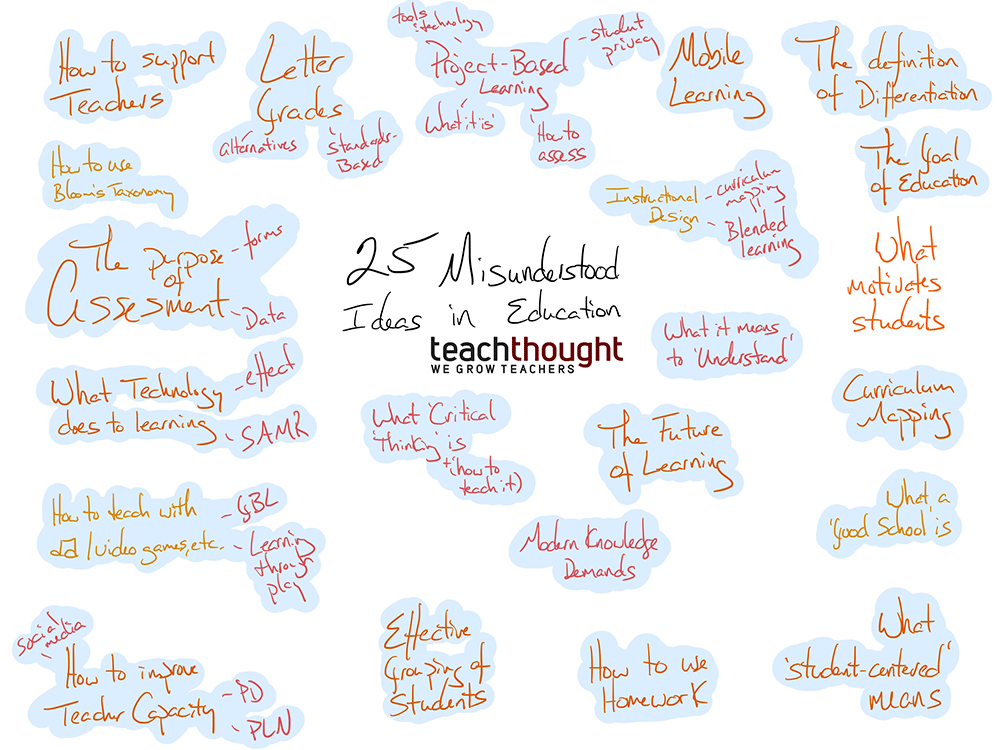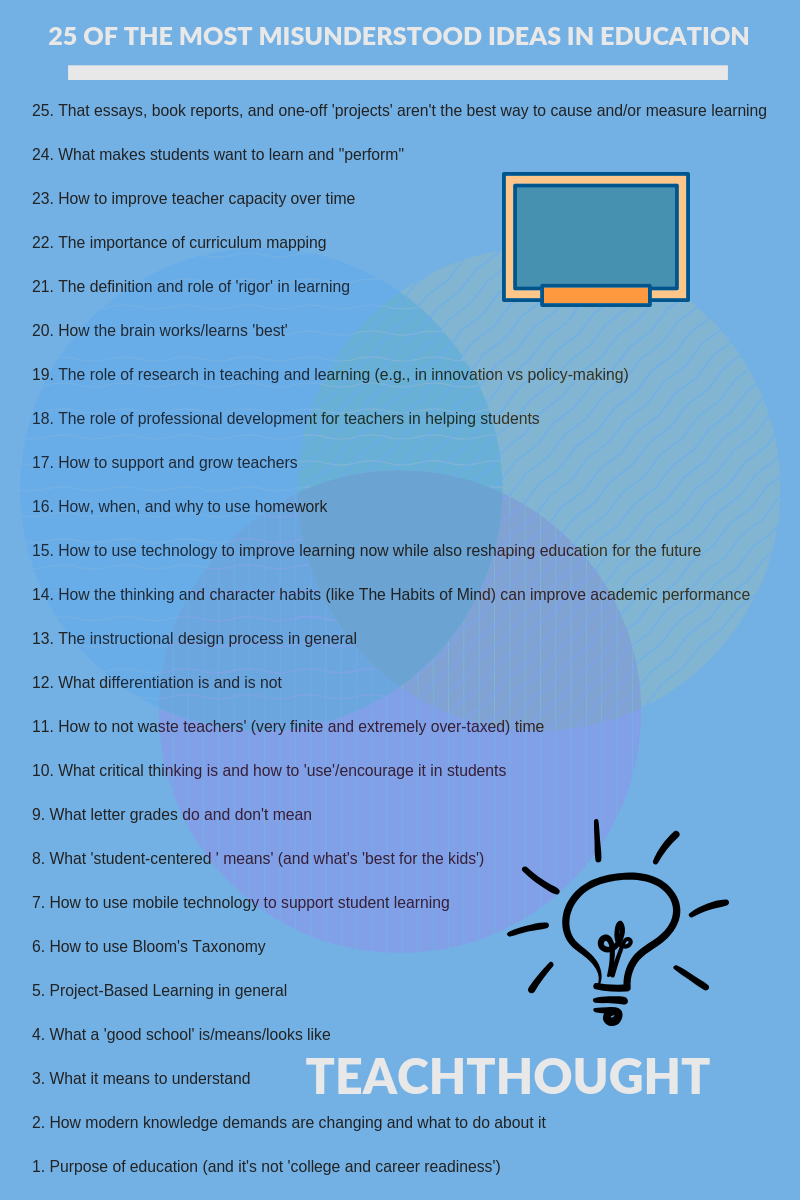
What Are The Most Misunderstood Ideas In Education?
by Terry Heick
There’s a lot of misunderstanding in education, and that makes sense because it’s a unique mix of narrow pedagogical expertise and broader human expression.
Education is for no one and for everyone.
Teaching is a fundamentally human craft (and learning a fundamentally natural thing) both embedded in a large context (the field of public education itself) that is driven by government policy, a dizzying hierarchy of Federal –> State –> District level ‘guidance’ and authority). This means there are multiple targets all moving and constantly being reinvented for people inside the classroom by people outside of the classroom all being constantly altered and disrupted by the evolution of technology.
There’s a lot going in that very innocent looking classroom.
25 Of The Most Misunderstood Ideas In Education
So, this post–the premise here is that if we misunderstand something, we’re not doing our best work now and will not be able to do our best work as long as we misunderstand it.
Obviously, I can’t explore 25 widely-ranging, complex, and inherently subjective ideas in great detail in a single post, so I’m just itemizing the ideas to hopefully spawn discussion in spaces local, useful, or important to you as an educator.
25. That essays, book reports, and one-off ‘projects’ aren’t the best way to cause and/or measure learning
24. What makes students want to learn and “perform”
23. How to improve teacher capacity over time
22. The importance of curriculum mapping
21. The definition and role of ‘rigor’ in learning
20. How the brain works/learns ‘best’
19. The role of research in teaching and learning (e.g., in innovation vs policy-making)
18. The role of professional development for teachers in helping students
17. How to support and grow teachers
16. How, when, and why to use homework
15. How to use technology to improve learning now while also reshaping education for the future
14. How the thinking and character habits (like The Habits of Mind) can improve academic performance
13. The instructional design process in general
12. What differentiation is and is not (also the difference between differentiated learning and personalized learning)
11. How to not waste teachers’ (very finite and extremely over-taxed) time
10. What critical thinking is and how to ‘use’/encourage it in students
9. What letter grades do and don’t mean
8. What ‘student-centered ‘ means‘ (and what’s ‘best for the kids’)
7. How to use mobile technology to support student learning
6. How to use Bloom’s Taxonomy (and further, the effect of the updates to Bloom’s Taxonomy)
5. Project-Based Learning (what it is/is not, how it works, best practices, how it connects to everything else, etc.)
4. What a ‘good school’ is/means/looks like
3. What it means to understand (and how to evaluate and measure that understanding–and what transfer is and how it’s a part of it all as well)
2. How modern knowledge demands are changing and what to do about it
1. Purpose of education (and it’s not ‘college and career readiness’)

